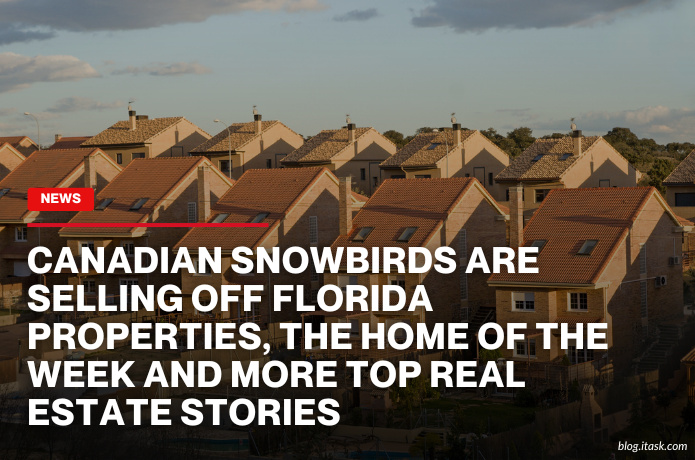Canadian snowbirds are selling off Florida properties, the Home of the Week and more top real estate stories
Canadian snowbirds are selling off Florida properties, the Home of the Week and more top real estate stories

Canadian snowbirds—retirees who spend winters in the U.S.—are increasingly selling their Florida properties due to rising costs and political tensions. The Canadian dollar's decline, now around 69 U.S. cents, has made maintaining U.S. homes more expensive. Additionally, insurance premiums have surged, with some homeowners facing annual costs exceeding $16,000, a tenfold increase from previous years. Property taxes and maintenance fees have also risen, prompting many to reconsider their investments.
The aftermath of recent hurricanes, such as Helene and Milton, has further strained the Florida housing market. These storms caused significant damage, leading to increased insurance claims and higher premiums. Some insurance companies have exited the Florida market, leaving homeowners with limited and costly options.
Political factors are also influencing decisions. The Trump administration's tariffs on Canadian goods, stricter border regulations, and derogatory remarks about Canada have made many Canadians feel unwelcome. New immigration rules requiring Canadians staying over 30 days to undergo background checks and registration have added to the discomfort.
Real estate agents report a significant increase in Canadian property listings in Florida. For instance, Alexandra DuPont, a broker in southeast Florida, is handling over 30 listings, double her usual workload. Properties that once sold quickly now linger on the market for months, indicating a shift in demand.
Younger retirees are opting for more flexible travel options instead of owning a second home. Destinations like Portugal, Mexico, and the Dominican Republic are becoming popular alternatives, offering warmer climates without the financial and political challenges associated with U.S. properties.
This trend signifies a potential long-term shift in snowbird habits. As the costs and complexities of owning U.S. properties increase, many Canadians are reevaluating their winter plans, potentially impacting the Florida real estate market and local economies reliant on seasonal residents.
